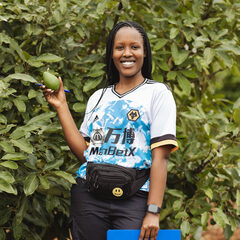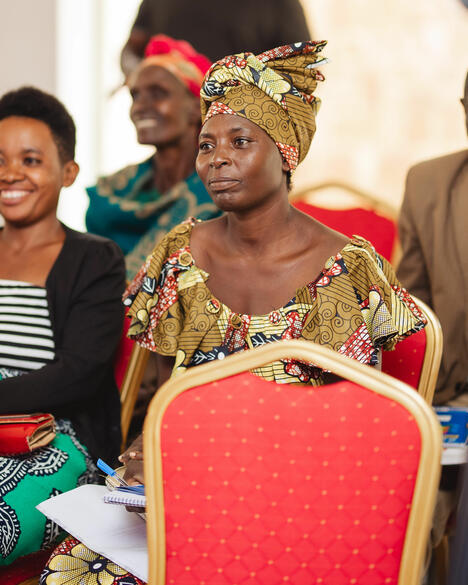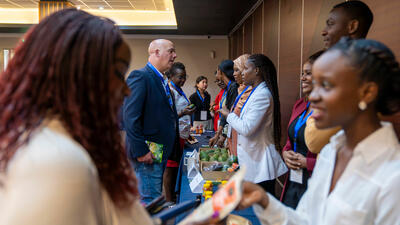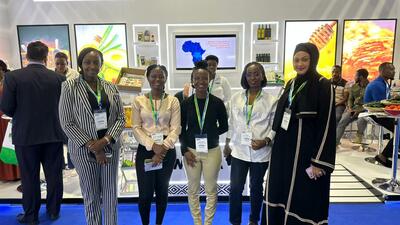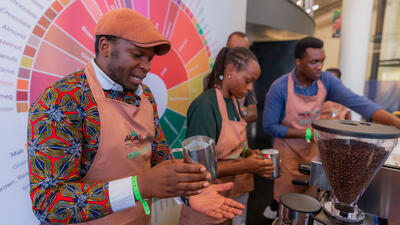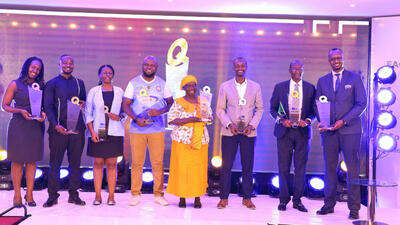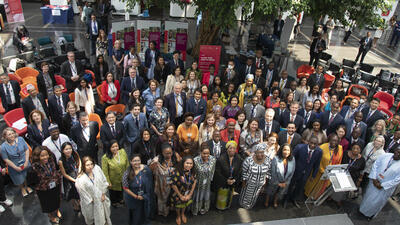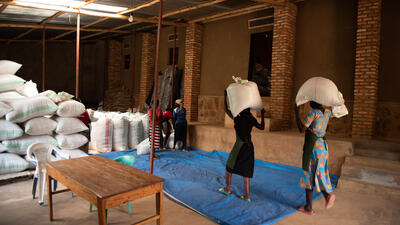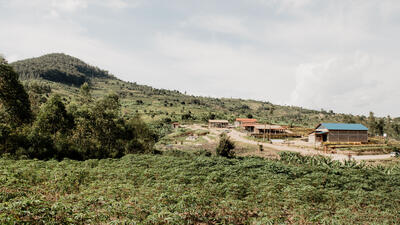
Young women as agents of economic transformation in Africa
The crucial role of improved access to markets for young women-led businesses
Through its Young Africa Works strategy, the Mastercard Foundation committed to enabling the creation of 30 million dignified and fulfilling work opportunities for young people in Africa, 70% of which are for young women, by 2030. We believe that one of the key pathways to creating these opportunities lies in supporting entrepreneurs, especially young women entrepreneurs.
The African Union estimates that 75% of Africa’s population is under the age of 35, and young women are 50% of this segment.
Additionally, according to a recent study conducted by McKinsey and Company, in partnership with the Mastercard Foundation, “young women in Africa can become important contributors to the continent’s economy, adding $287 billion (a 5% GDP increase) and 23 million jobs” to the continent by 2030. We believe that investing in young women, through innovative and holistic support is crucial for sustainable economic growth and social development in Africa.
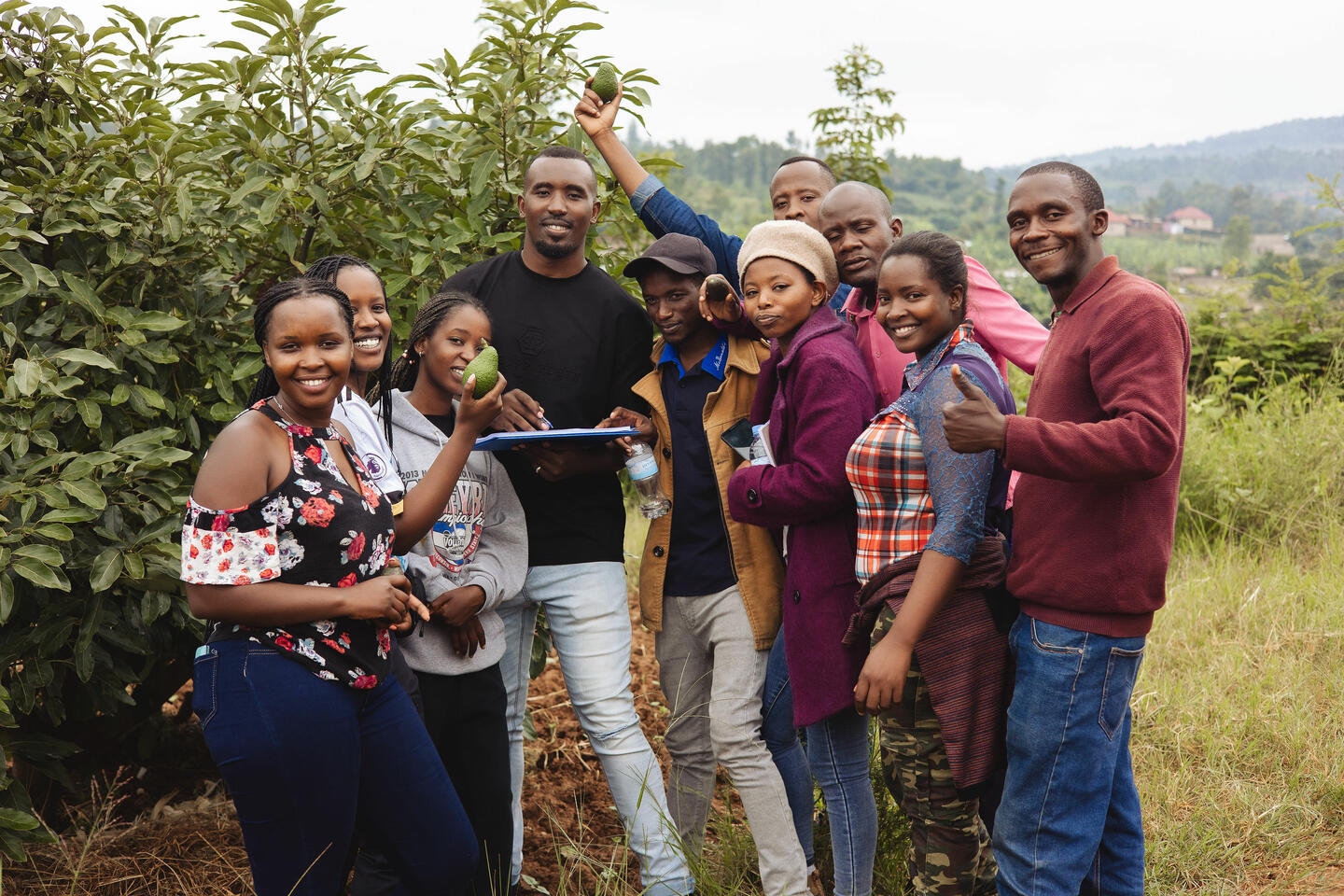
Micro, small, and medium-sized enterprises are the backbone of Africa’s economy. We also know that Africa is the continent where women start businesses faster than anywhere else in the world; and in Rwanda specifically, young women have shown a preference for entrepreneurship as a pathway to access work. However, young Rwandan women entrepreneurs still face significant challenges that hinder their growth and inclusion in global supply chains.
Most women-owned businesses in Rwanda are in the informal sector, are smaller than men-owned businesses, have fewer employees, and are less profitable. This is due to several barriers, including lower levels of entrepreneurial and digital skills, difficulty accessing adequate financing, limited access to markets, networks, and information, and gender norms that restrict their time availability due to caregiving roles. It is important to note that these challenges are amplified for young women entrepreneurs.
To help young women entrepreneurs overcome these challenges and access markets, we have taken on a multi-pronged approach to meet them on their entrepreneurship journey. It includes:
- Providing tailored business development services and facilitating access to gender-responsive digital innovations that increase productivity.
- Offering access to market information through stronger networks and digital platforms.
- Creating direct linkages between the entrepreneurs and large buyers as well as financial services providers.
- Addressing issues of compliance with quality certification standards.
- Boosting their self-confidence and enabling a shift towards market-oriented mindsets and practices.
In 2023, the Mastercard Foundation partnered with the International Trade Centre’s SheTrades Initiative and Trademark Africa through a programme called VIBE (Value-Added Initiative to Boost Employment) to deliver on many of the above-mentioned solutions in Rwanda. Through this programme, we are unlocking access to domestic, regional, and global networks, as well as markets for 22,450 entrepreneurs, including 15,780 young women entrepreneurs, to create over 43,930 work opportunities for youth; 70% being young women, by 2028.
We are working specifically with the International Trade Centre to support 150 women-led and 900 refugee-led agricultural small businesses along with other individuals in Rwanda to link them to wider domestic and regional markets, as well as to work opportunities within the horticulture value chains. These efforts are expected to unlock over 21,375 dignified and fulfilling work opportunities for young women and men including young refugees.
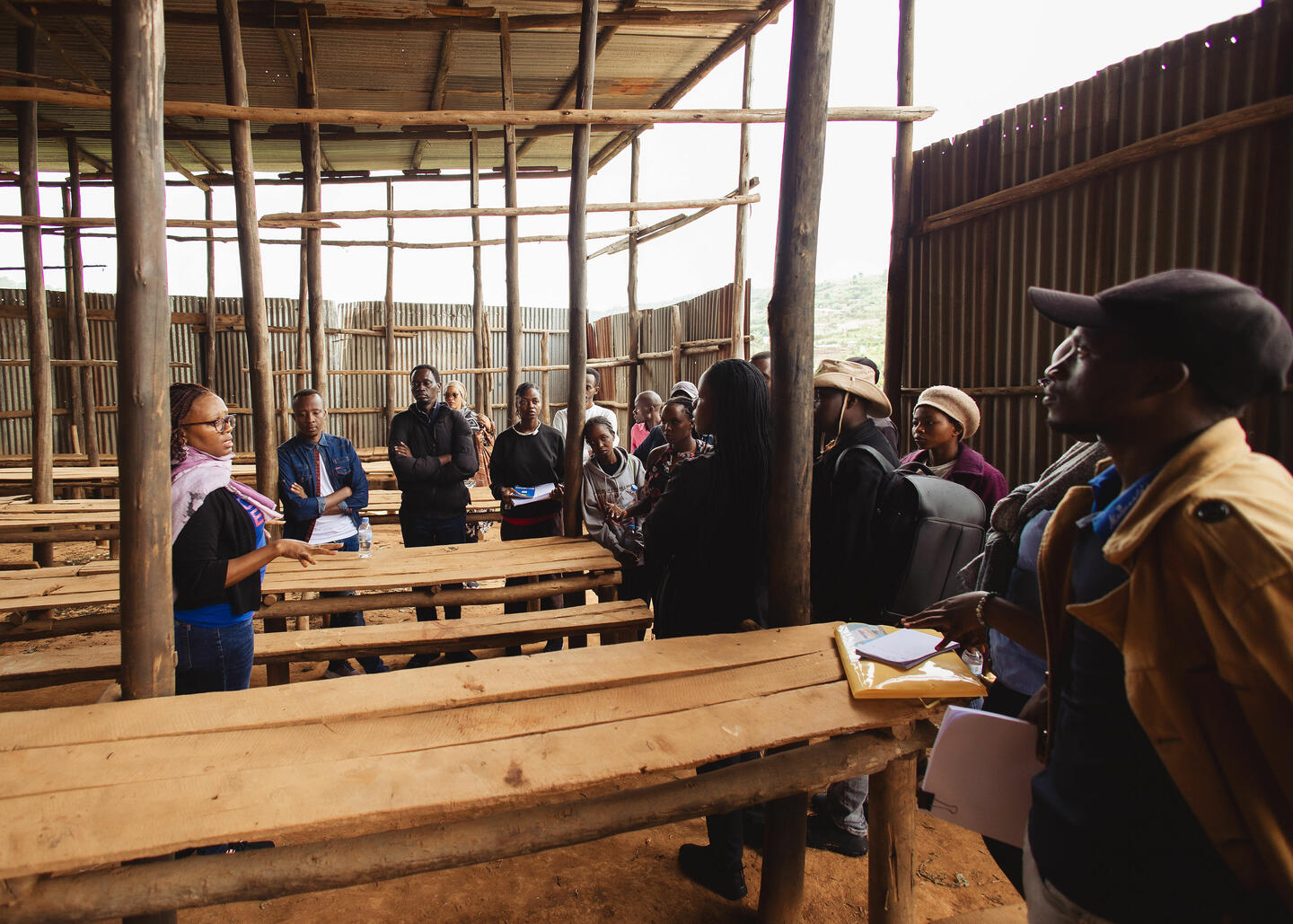
We are encouraged by the opportunity that Rwandan women entrepreneurs represent in trade and their potential to fully participate as agents of growth and transformation in our country. To build a thriving entrepreneurial ecosystem for women, we need collaborations and partnerships between the private sector, public sector, non-profit organizations, businesses, and investors.
This holistic approach will create a welcoming and inclusive environment for young women entrepreneurs across supply chains, enabling them to thrive and contribute to Africa's economic development. Let us continue to invest in young women through small business trade and market access. By doing so, we can ensure they can grow, succeed, and transform our communities and our continent. Together, we can create a brighter, more prosperous future for all.




